第5章 The Secession Movement(5)
Business has gone up the rivers between which Charleston lies and has left the point of the city's peninsula, where East Battery looks outward to the Atlantic, in its perfect charm. There large houses, pillared, with high piazzas, stand apart one from another among gardens. With few exceptions they were built before the middle of the century and all, with one exception, show the classical taste of those days. The mariner, entering the spacious inner sea that is Charleston Harbor, sights this row of stately mansions even before he crosses the bar seven miles distant.
Holding straight onward up into the land he heads first for the famous little island where, nowadays, in their halo of thrilling recollection, the walls of Sumter, rising sheer from the bosom of the water, drowse idle. Close under the lee of Sumter, the incoming steersman brings his ship about and chooses, probably, the eastward of two huge tentacles of the sea between which lies the city's long but narrow peninsula. To the steersman it shows a skyline serrated by steeples, fronted by sea, flanked southward by sea, backgrounded by an estuary, and looped about by a sickle of wooded islands. This same scene, so far as city and nature go, was beheld by the crowds that swarmed East Battery, a flagstone marine parade along the seaward side of the boulevard that faces Sumter; that filled the windows and even the housetops; that watched the bombardment with the eagerness of an audience in an amphitheater; that applauded every telling shot with clapping of hands and waving of shawls and handkerchiefs.
The fort lay distant from them about three miles, but only some fifteen hundred yards from Fort Johnston on one side and about a mile from Fort Moultrie on the other. From both of these latter, the cannon of those days were equal to the task of harassing Sumter. Early in the morning of the 12th of April, though not until broad day had come, did Anderson make reply. All that day, at first under heavily rolling cloud and later through curiously misty sunshine, the fire and counterfire continued. "The enthusiasm and fearlessness of the spectators," says the Charleston Mercury, "knew no bounds." Reckless observers even put out in small boats and roamed about the harbor almost under the guns of the fort. Outside the bar, vessels of the relieving squadron were now visible, and to these Anderson signaled for aid. They made an attempt to reach the fort, but only part of the squadron had arrived; and the vessels necessary to raise the siege were not there. The attempt ended in failure. When night came, a string of rowboats each carrying a huge torch kept watch along the bar to guard against surprise from the sea.
On that Friday night the harbor was swept by storm. But in spite of torrents of rain East Battery and the rooftops were thronged.
"The wind was inshore and the booming was startlingly distinct."
At the height of the bombardment, the sky above Sumter seemed to be filled with the flashes of bursting shells. But during this wild night Sumter itself was both dark and silent. Its casements did not have adequate lamps and the guns could not be used except by day. When morning broke, clear and bright after the night's storm, the duel was resumed.
The walls of Sumter were now crumbling. At eight o'clock Saturday morning the barracks took fire. Soon after it was perceived from the shore that the flag was down. Beauregard at once sent offers of assistance. With Sumter in flames above his head, Anderson replied that he had not surrendered; he declined assistance; and he hauled up his flag. Later in the day the flagstaff was shot in two and again the flag fell, and again it was raised. Flames had been kindled anew by red-hot shot, and now the magazine was in danger. Quantities of powder were thrown into the sea. Still the rain of red-hot shot continued. About noon, Saturday, says the Courier, "flames burst out from every quarter of Sumter and poured from many of its portholes...the wind was from the west driving the smoke across the fort into the embrasures where the gunners were at work." Nevertheless, "as if served with a new impulse," the guns of Sumter redoubled their fire. But it was not in human endurance to keep on in the midst of the burning fort.
This splendid last effort was short. At a quarter after one, Anderson ceased firing and raised a white flag. Negotiations followed ending in terms of surrender--Anderson to be allowed to remove his garrison to the fleet lying idle beyond the bar and to salute the flag of the United States before taking it down. The bombardment had lasted thirty-two hours without a death on either side. The evacuation of the fort was to take place next day.
The afternoon of Sunday, the 14th of April, was a gala day in the harbor of Charleston. The sunlight slanted across the roofs of the city, sparkled upon the sea. Deep and rich the harbor always looks in the spring sunshine on bright afternoons. The filmy atmosphere of these latitudes, at that time of year, makes the sky above the darkling, afternoon sea a pale but luminous turquoise. There is a wonderful soft strength in the peaceful brightness of the sun. In such an atmosphere the harbor was flecked with brilliantly decked craft of every description, all in a flutter of flags and carrying a host of passengers in gala dress. The city swarmed across the water to witness the ceremony of evacuation. Wherry men did a thriving business carrying passengers to the fort.
Anderson withdrew from Sumter shortly after two o'clock amid a salute of fifty guns. The Confederates took possession. At half after four a new flag was raised above the battered and fire-swept walls.